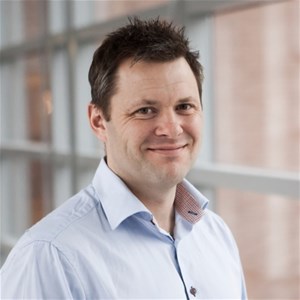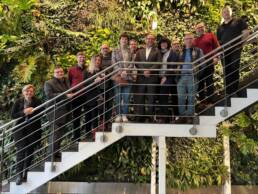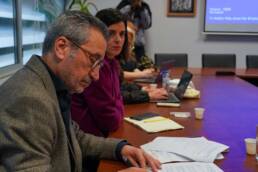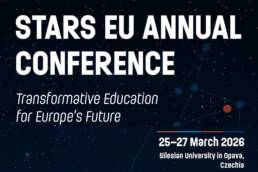The STARS EU universe was recently expanded with the introduction of a new TIG in Sustainable Industry. Representatives from all nine STARS EU partners met at University West, in Sweden, to draw up a strategic plan for the coming years.
We asked four questions to Mikael Ericsson, senior researcher in robotics and automation at University West, who leads the TIG.
 The TIG Sustainable Industry is a relatively new TIG. What are your goals?
The TIG Sustainable Industry is a relatively new TIG. What are your goals?
Today, the European industry faces major challenges that will affect its future. These areas are connected to new technology development, digital and energy transformation, and climate change. Also, to increase competitiveness between countries and companies outside Europe, the EU and industry must focus on regional and national value chains to shorten transportation and services linked to manufacturing various products.
These challenges affect competitiveness and opportunities for transformation and renewal. The TIG Sustainable Industry will support students and researchers, industry, and society with new and innovative technology and competencies by developing courses and starting new research cooperations and projects to meet the challenges faced by industry in Europe. These activities will generate and share new knowledge with the surrounding community.
What was the purpose of the meeting?
This was the first time the TIG had a face-to-face meeting with all partners participating. The main purpose was to get to know each other. Secondly, we wanted to discuss our strategic plan for the TIG for 2025 and 2026. Another aspect was to show the facilities at University West that could be of relevance to the Sustainable Industry TIG.
What were the most important points discussed during the meeting?
In the development of the plan, we were discussing how we can develop BIPs and micro credential courses, double degree programs and joint research projects. We also discussed how we can contribute to mobility, both for students and for staff, between our universities, and updated ourselves on future calls for research funding within the EU.
What will the focus of the TIG in the coming months?
We will work with the implementation of the plan, focusing on courses and double degree programs. We will also plan for upcoming research calls by trying to set up a consortium with common research interests.
Related Posts
February 6, 2026
Celebrate the International Day of Women and Girls in Science with STARS EU
The alliance demonstrates its commitment to full and inclusive participation of…
February 3, 2026
Bragança Polytechnic University and University West strengthen their strategic cooperation in research and doctoral training within STARS EU
The meeting addressed the implementation of joint doctorates and the connection…
January 30, 2026
Education to address new challenges, focus of the third STARS EU Annual Conference
The next event will take place in March 2026 at the Silesian University in…




